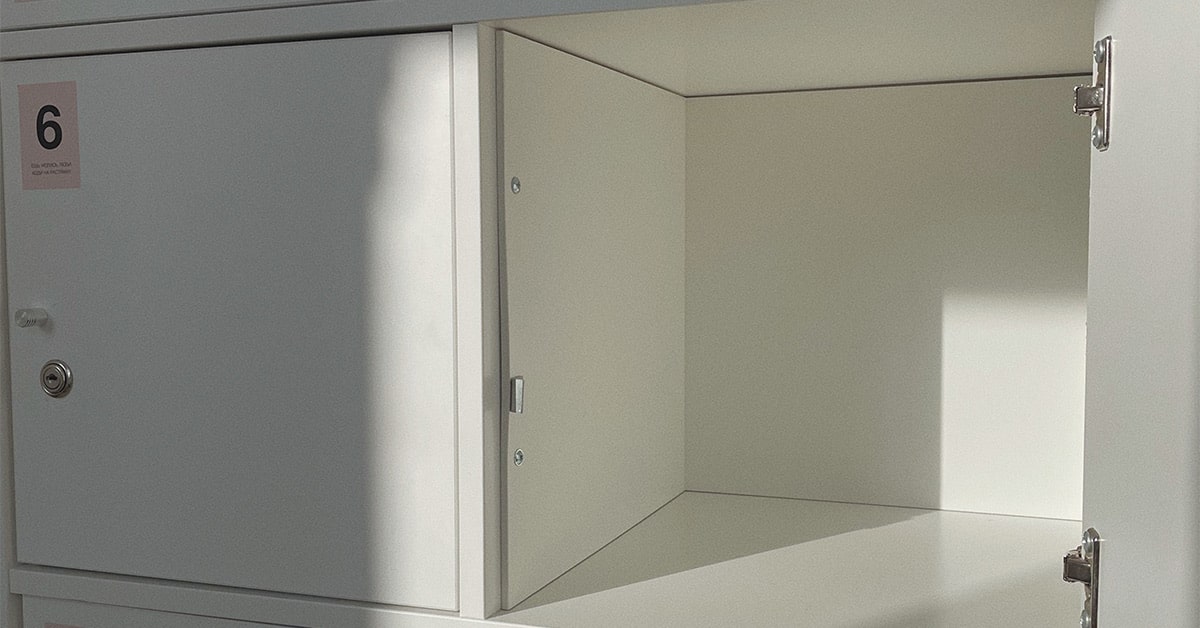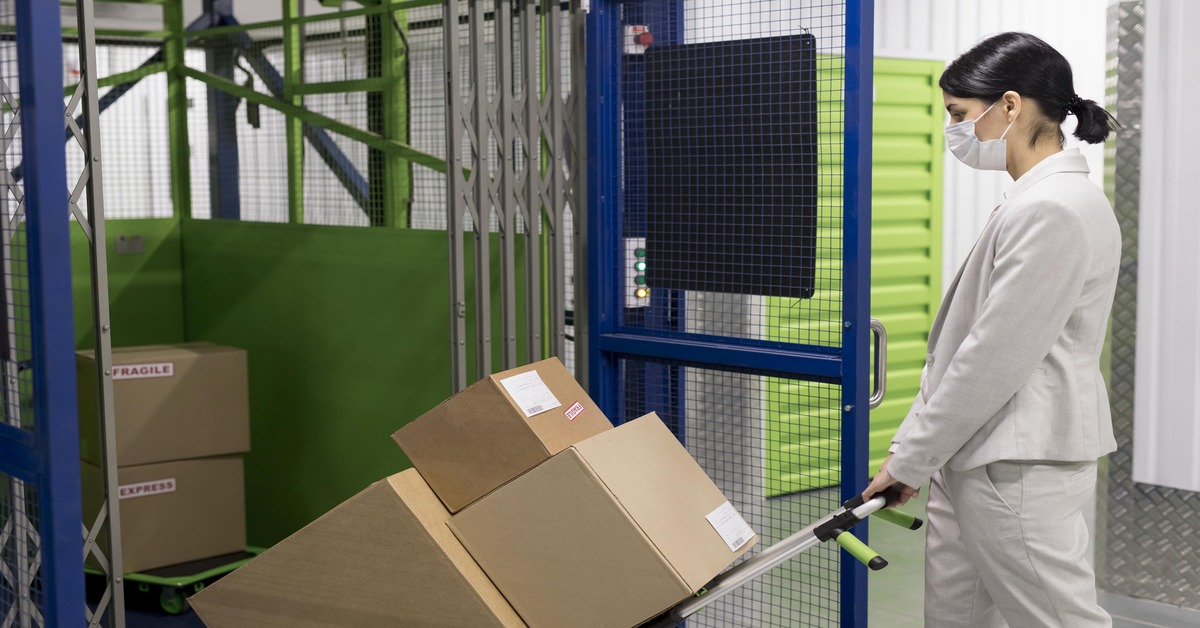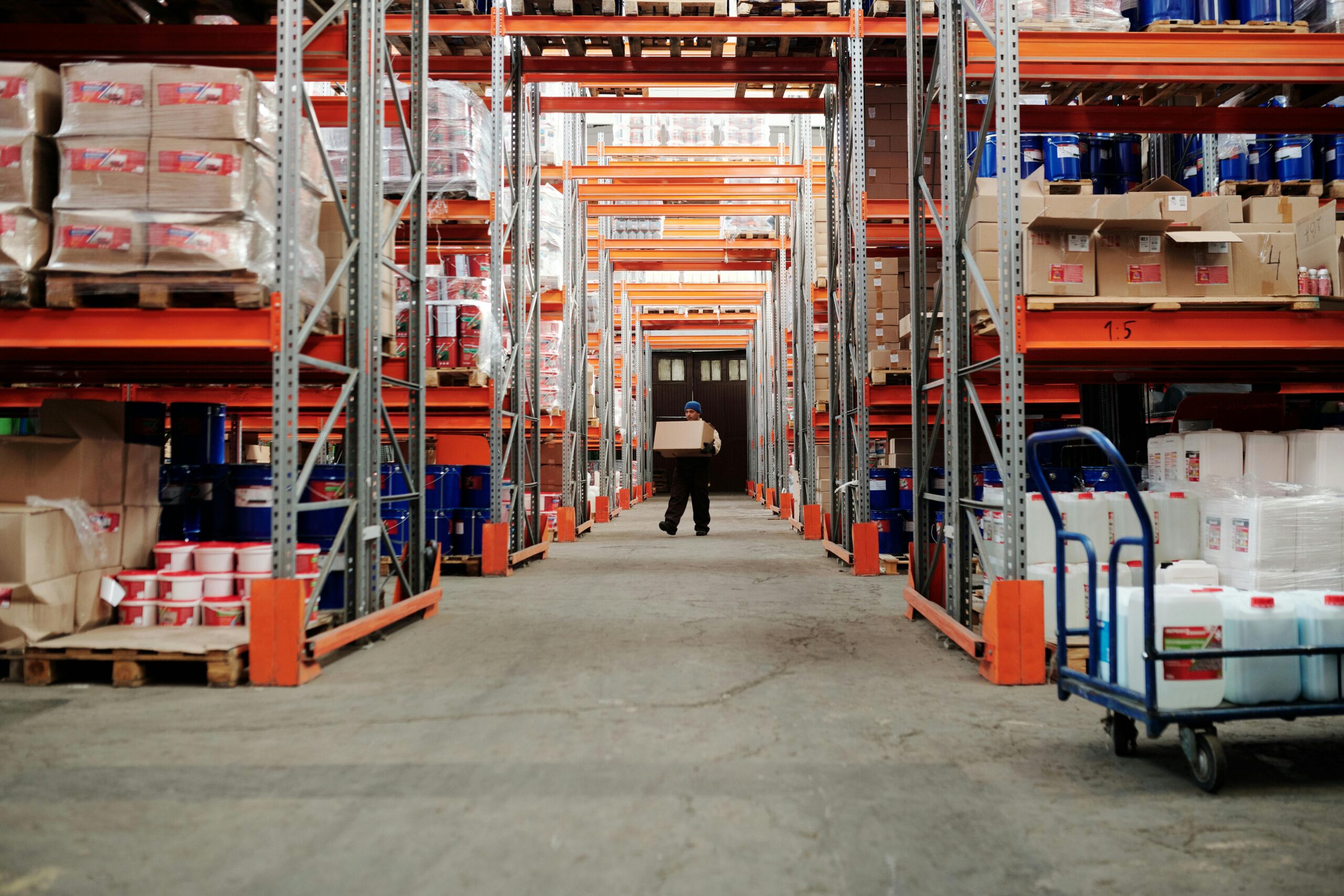Table of Contents
Safe storage for businesses is a fundamental aspect that often shapes the success of any venture. Picture it like organizing your room – having a designated place for everything makes life smoother. In the business world, the concept is similar but on a larger scale. In business world, keeping things safe and well-organized is a big deal and inventory is more than just a collection of goods. It is a valuable asset that can make or break your bottom line.
This is where the concept of “Safe Storage for Businesses” comes into play. This article will walk you through the basics of why safe storage matters for businesses and the possible troubles they might face if they overlook this crucial aspect. Whether you’re a seasoned business owner or a budding entrepreneur, understanding the role of secure storage in inventory management can give your business a competitive edge.
The Importance of Safe Storage for Businesses
Firstly, let’s delve into why safe storage is vital for businesses. Inventory, whether it’s raw materials, work-in-progress, or finished goods, represents a significant investment. It’s the lifeblood of any retail or wholesale business, and its management can directly impact a company’s profitability.
Without proper storage, your inventory is exposed to a myriad of risks. Theft is a common concern, especially for high-value items. However, it’s not just criminal activity that poses a threat. Environmental factors such as moisture, heat, pests, and dust can also damage your goods, leading to substantial financial losses. For instance, electronics can malfunction in high humidity, while food products can spoil in improper temperatures. Safe storage, therefore, ensures that your inventory is protected from both external and internal threats.
Moreover, safe storage is not just about protection—it’s also about organization. A well-organized storage system allows for efficient inventory management, preventing overstocking or understocking. It ensures that the right products are available at the right time, preventing stockouts that can lead to lost sales and disappointed customers. In this way, safe storage plays a crucial role in enhancing customer satisfaction and loyalty.
Understanding Safe Storage for Business
Safe storage involves systematic methods to securely store items, minimizing risks and damage. It’s about ensuring that your stored goods remain intact and usable when needed. Self-storage facilities are spaces that you can rent for short or long-term storage. They provide a variety of unit sizes, from small lockers for storing documents or small inventory items, to large warehouses that can accommodate bulk goods or even machinery. This flexibility allows businesses to choose a space that perfectly fits their needs, without wasting money on unnecessary square footage.
Moreover, these facilities often feature advanced security measures. This can include 24/7 surveillance, alarm systems, and gated access. Some facilities even offer on-site security personnel for added peace of mind. This level of security is often superior to what most businesses could implement on their own, making self-storage a smart choice for inventory protection.
Common Challenges for Safe Storage for Business
Limited space can be a tangible obstacle, demanding creative solutions for optimal utilization. Effective organization and inventory management emerge as primary tasks, requiring to maintain a balance between accessibility and order. Neglecting these things may lead to inefficiencies and misplaced items.
Moreover, security concerns loom large, emphasizing the need for protective measures. Implementing robust locks, surveillance, and access controls becomes paramount. Addressing these common storage challenges ensures a smoother, more efficient business environment. By unraveling effective inventory organization techniques, businesses can navigate these hurdles, fostering a safer and more streamlined storage infrastructure.
How Self Storage Safeguards Your Inventory
The answer lies in its features. As mentioned earlier, self-storage facilities are designed with security in mind. They are equipped with CCTV cameras that monitor the premises around the clock, secure locks that prevent unauthorized access, and sometimes even biometric access controls that ensure only authorized personnel can enter the storage unit.
But security is more than just preventing theft. It’s also about protecting your inventory from environmental damage. This is where climate-controlled units come in. These units maintain a consistent temperature and humidity level, ensuring your sensitive inventory is protected from extreme temperatures and humidity. This is particularly important for businesses that deal with delicate items such as electronics, artwork, wine, or pharmaceuticals.
In addition, many self-storage facilities offer pest control services, further safeguarding your inventory from potential harm. They also provide fire protection measures such as smoke detectors and fire extinguishers, reducing the risk of fire damage to your goods.
Safe Storage for Businesses ensures inventory security through advanced features like CCTV monitoring and biometric access controls, providing peace of mind for your valuable assets.
Best Practices for Safe Storage
Let’s break down key techniques to ensure your inventory stays secure and well-managed:
- Proper Shelving and Stacking Techniques: Efficiently arrange items on shelves, ensuring heavier loads are at the bottom. Use sturdy, appropriate shelving to prevent collapses and accidents.
- Labeling and Categorizing Inventory: Simplify tracking by labeling each item clearly. Categorize inventory logically, making it easy for staff to locate items swiftly and maintain an organized workspace.
- Implementing Security Measures: Safeguard your assets by installing locks, alarms, and surveillance systems. These act as deterrents and provide a layer of protection against theft or unauthorized access.
- Climate Control and Environmental Considerations: Protect sensitive items from environmental factors. Implement climate control measures to prevent damage caused by temperature fluctuations or humidity, ensuring the longevity of your inventory.
By integrating these straightforward yet effective practices, businesses can fortify their storage systems, promoting both safety and efficiency. Unveil the potential within your inventory organization techniques for a more secure and streamlined operation.
The Cost-Effectiveness of Safe Storage
It’s also worth noting the cost-effectiveness of self-storage. When it comes to business expenses, rent can be one of the most significant. This is especially true for businesses located in urban areas, where commercial warehouse space can be prohibitively expensive. In contrast, renting a self-storage unit is often much cheaper, making it an attractive option for small businesses or startups on a tight budget.
Plus, with self-storage, you only pay for the space you need. This means you can start with a small unit and gradually upgrade as your business grows, rather than paying for a large warehouse that you might not fully utilize. This scalability is one of the key advantages of self-storage, allowing businesses to adapt their storage solution to their changing needs.
Furthermore, self-storage facilities often offer flexible rental terms. Unlike commercial leases, which typically require a long-term commitment, self-storage contracts can be month-to-month. This flexibility allows businesses to adjust their storage space according to seasonal demand fluctuations, further enhancing cost-effectiveness.
Choosing the Right Self Storage Facility
Choosing the right self-storage facility is key to ensuring the safety of your inventory. But with so many options available, how do you make the right choice?
Firstly, consider the facility’s security measures. Look for a facility that offers robust security features such as 24/7 surveillance, alarm systems, and secure locks. If your inventory is sensitive to environmental conditions, make sure the facility offers climate-controlled units.
Secondly, consider the location. A facility that’s conveniently located near your business can save you time and transportation costs. However, keep in mind that facilities in urban areas may charge higher rates than those in outlying areas.
Lastly, consider the facility’s reputation. Read reviews and ask for recommendations to ensure the facility provides reliable service. A reputable facility should have a track record of satisfied customers and a low incidence of security issues.
Final Words
In the dynamic landscape of business operations, the significance of safe storage practices and meticulous inventory organization cannot be overstated. Self-storage facilities offer a secure, flexible, and cost-effective solution for safeguarding your inventory. By choosing the right self-storage facility, you can protect your valuable assets, optimize your inventory management, and ultimately, ensure the smooth operation of your business.
FAQs
A: Safe storage is important for businesses to protect their assets, maintain product quality, comply with regulations, and mitigate risks associated with theft or damage.
A: Items such as inventory, documents, equipment, and sensitive materials may require safe storage to ensure their integrity and usability.
A: Yes, businesses must adhere to relevant laws and regulations governing the storage of certain items, especially those related to safety, health, and data protection.
A: Businesses can optimize storage space by implementing efficient shelving, organization systems, and utilizing off-site storage solutions if necessary.
A: Businesses can enhance security through the use of locks, alarms, surveillance systems, and access controls to prevent unauthorized access and theft.
A: Businesses can enhance security through the use of locks, alarms, surveillance systems, and by implementing access control measures.
A: Yes, businesses can leverage technology solutions such as inventory management software, RFID, and barcode systems to streamline and enhance their inventory organization.
A: Certainly. The article will highlight case studies and examples of businesses that have successfully implemented safe storage practices, showcasing best practices and lessons learned.
 Contact Us
Contact Us
Our Storage experts will get in touch with you.





